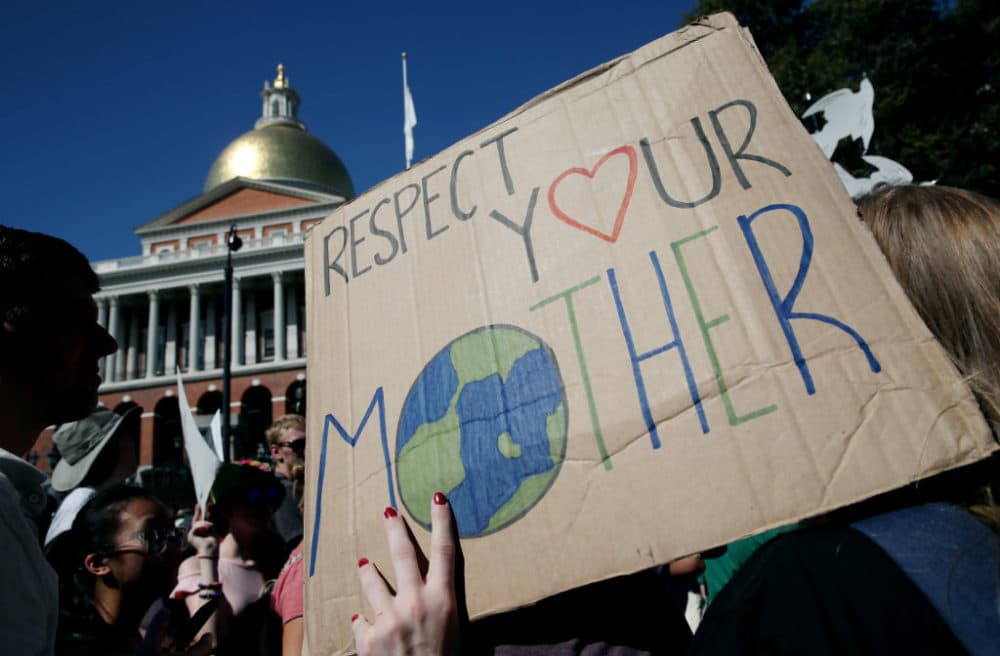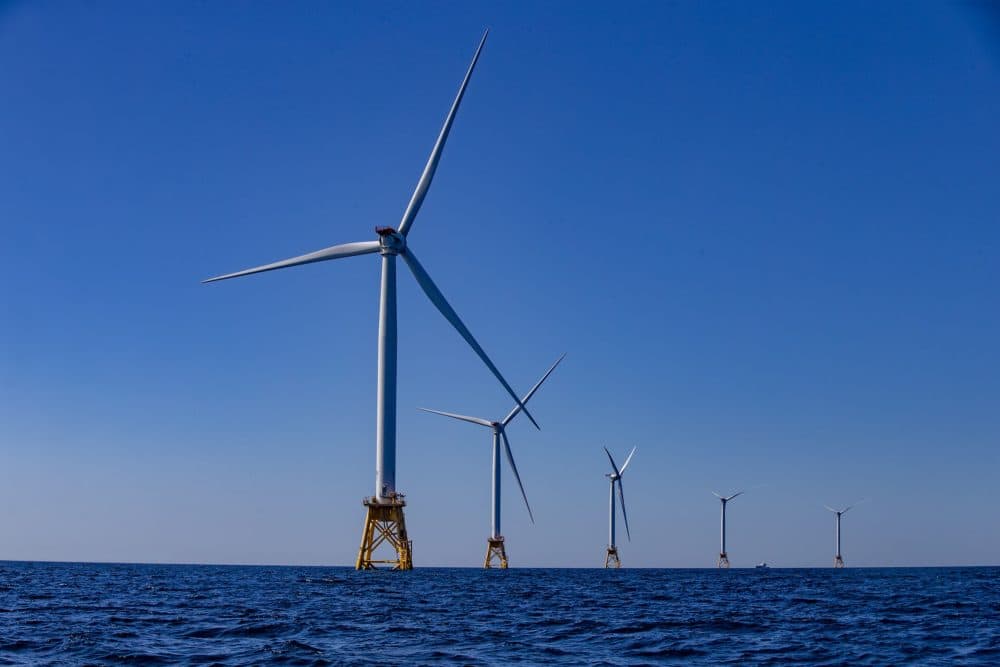Advertisement
How Mass. climate goals align with the latest UN report

A new report from the United Nations put its starkly: we need worldwide emissions to be at “net zero” by 2050 if we want to limit warning to 1.5 degrees Celsius. Failing to do this means we will almost certainly experience heightened ecological catastrophe and human suffering.
According to the Intergovernmental Panel on Climate Change (IPCC), which published the report Monday, we’re not doing too well on this goal.
“The IPCC report points out very starkly that globally emissions are far off track from where they need to be to meet our climate goals,” says Rachel Cleetus, policy director with the Climate and Energy program at the Union of Concerned Scientists.
“But we have the solutions to do it — the report is very clear [about that]," she said. "This is a question of political will.”
The same can be said for Massachusetts.
“The targets that Massachusetts has set are certainly in line with what the IPCC is calling for globally,” Cleetus said.
But the question is whether the state is implementing the right policies to achieve the goal in time. And on that one, “the jury’s still out.”
As part of the 2021 Climate Act, Massachusetts committed to getting greenhouse gas emissions 50% lower than they were in 1990 by 2030, and to reach net zero by 2050. The law also sets legally binding emissions limits for certain sectors like buildings, transportation and the electrical grid, and it requires utilities to buy increasing amounts of renewable energy.
“Passage last year of the Climate Act gave grounds for hope in the fight against emissions. But in the 15 months that have since passed, we’ve lost focus,” said state Sen. Mike Barrett, who helped draft the law. The state has “no plan yet to reduce transportation emissions, and no reassuring hints of bold steps in the offing. [The Baker administration is also] backsliding on what municipalities will be able to do under the upcoming net zero stretch energy code.”
Advertisement
Echoing the language in Mondays’ IPCC report, Barrett says the “strategies are available to us, but we need to seize the moment.”
A new public tracking tool from the Environmental League of Massachusetts shows that the state has missed some key deadlines in implementing parts of the climate law.
“It is clear that we are not on track,” said league President Elizabeth Henry. And “absent significant additional policy intervention, Massachusetts is poised to badly miss the mark.”
But there’s some good news.
“If policymakers double-down on proven clean electricity solutions like offshore wind and solar with storage — and move aggressively to stop combusting fossil fuels for buildings and transportation, we can still get Massachusetts on pace to decarbonize at the rate the climate crisis requires,” Henry said.

Monday’s IPCC report is the third and final part in a series of reports about the state of climate science. The first report looked at the causes of climate change and the second examined the effects on the planet and humans.
In this latest report, scientists from around the world looked at several possibilities for reducing emissions and found that if we want to stay within 1.5 degrees celsius, global emissions need to peak by 2025 and start falling precipitously. The planet has already warmed about 1.1 degrees since the Industrial Revolution.
Hitting this goal is not a sure thing. It'll require dramatically reducing our reliance on fossil fuels and building more renewable and energy storage projects. It also requires bolstering public transportation, electrifying as much as we can, improving energy efficiency, investing in technologies and nature-based solutions to remove carbon dioxide from the atmosphere, and making sure that the poorest countries and people in the world aren’t left behind.
“This report reminds us that the climate emergency hasn't gone away and that if we take the pedal off of the accelerator, we will miss out on the opportunity to protect our planet and the most catastrophic impacts of climate change,” said Deb Markowitz, Massachusetts director of The Nature Conservancy.
She hopes the report reinvigorates policy leaders in Massachusetts to address climate change.
“We’ve been national leaders in setting a high bar and then holding ourselves to it,” she said. “But it's always hardest when it comes to doing the things necessary for implementation. And that's the moment we're in right now.”
